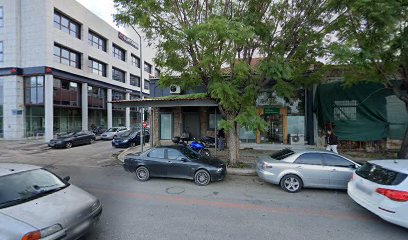
Archaeological Museum of Olympia: A Treasury of Ancient Wonders
Discover ancient Greek treasures at the Archaeological Museum of Olympia, home to iconic sculptures and a world-renowned bronze collection.
The Archaeological Museum of Olympia, located in Ancient Olympia, Greece, showcases a vast collection of artifacts from the surrounding area, including the site of the ancient Olympic Games. It's a journey through time, from prehistory to the Roman era, featuring iconic sculptures and a world-renowned bronze collection.
A brief summary to Archaeological Museum of Olympia
- Archaia Olympia, 270 65, GR
- +302624022742
- Visit website
Local tips
- Purchase a combined ticket for access to the Archaeological Site of Olympia, the Archaeological Museum, the Museum of the History of the Olympic Games, and the Museum of the History of the Excavations in Olympia.
- Visit during the high season (April to October) for extended opening hours.
- Check the museum's website for free admission days and reduced ticket eligibility.
- Allow ample time to explore the museum's extensive collection, including the renowned sculptures and bronze artifacts.
- Take advantage of the museum's amenities, such as the café-restaurant and museum shop.
Getting There
-
Walking
From the center of Olympia, walk east on the main road, Olympias Street. Turn left onto Pindou Street and walk for about 300 meters. The museum will be on your right, approximately a 10-minute walk from the town center.
-
Public Transport
From Pyrgos, take the KTEL bus to Olympia. From the Olympia bus station, the museum is a short walk away. Follow the signs towards the archaeological site; the museum is located nearby.
-
Taxi
Taxis are available in Olympia. A short taxi ride from the town center to the museum will cost approximately €5-€10. Confirm the fare with the driver before starting your journey.
-
Driving
From Athens, drive west on the A8/E94 highway, then continue on the A8/E55 highway. Exit at Pyrgos/Olympia and follow the signs to Olympia. Parking is available at the Ancient Olympia Parking Lot near the site. Parking is free.
Discover more about Archaeological Museum of Olympia
Iconic landmarks you can’t miss
Sanctuary of Eleithyia
0.2 km
Discover the Sanctuary of Eleithyia in Olympia, Greece: a historical landmark dedicated to the goddess of childbirth and ancient rituals.
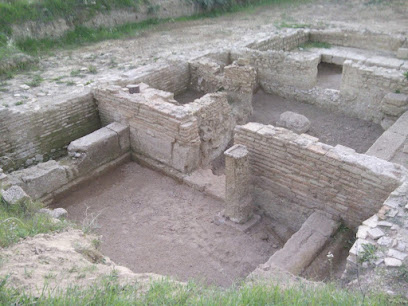
Statue of Zeus at Olympia
0.3 km
Explore the ruins where the colossal Statue of Zeus once stood, a testament to ancient Greece's artistic and athletic achievements.
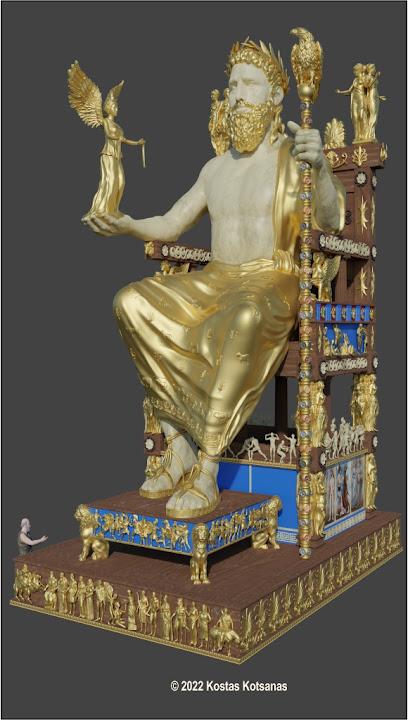
Ancient Olympia Parking Lot
0.4 km
Your free and convenient starting point for exploring the historic grounds of Ancient Olympia, the birthplace of the Olympic Games.
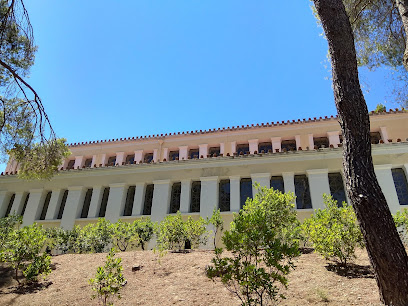
Ancient Gymnasium
0.5 km
Explore the ancient training grounds of Olympic athletes at the Gymnasium of Olympia, a testament to athletic preparation and dedication.
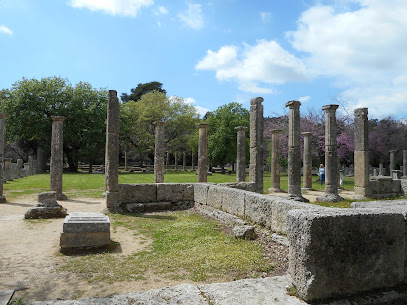
Museum of the History of the Excavations in Olympia
0.5 km
Explore the rich heritage of Greece at the Museum of the History of the Excavations in Olympia, home to stunning artifacts from the ancient Olympic Games.
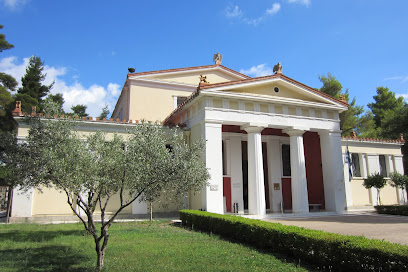
Sikyonian Treasury
0.5 km
Explore the ruins of the Sikyonian Treasury in Delphi, a testament to ancient Greek power and artistry, offering a glimpse into a rich history.
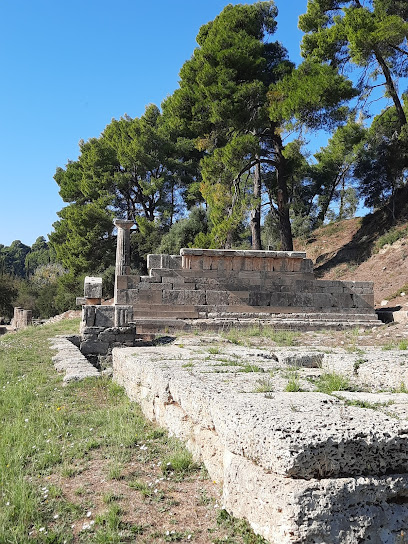
Treasures of Olympia
0.5 km
Discover the captivating world of ancient Greece at Treasures of Olympia, where history, culture, and natural beauty converge.
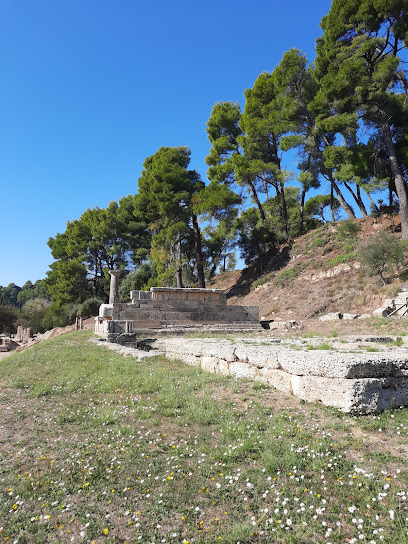
Altar of Hera
0.5 km
Visit the Altar of Hera in Olympia, Greece, where the Olympic flame is kindled, linking ancient traditions to the modern games.
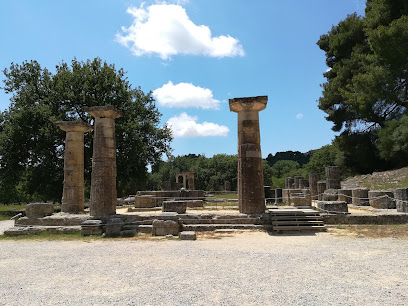
Metroon
0.5 km
Explore the ruins of the Metroon in Ancient Olympia, a temple dedicated to the Mother of the Gods, and discover its fascinating history.
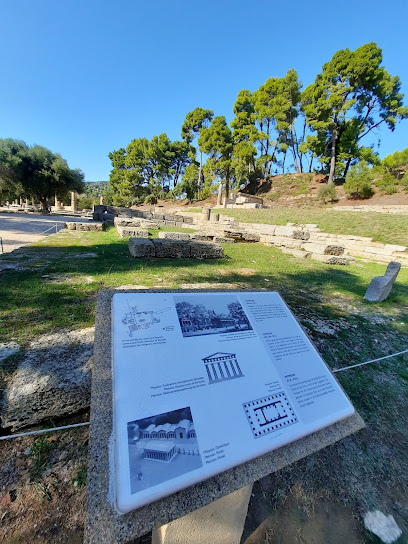
Stadium Gate
0.6 km
Step through history at Olympia's Stadium Gate, where the ancient Olympic spirit comes alive. A must-see landmark!
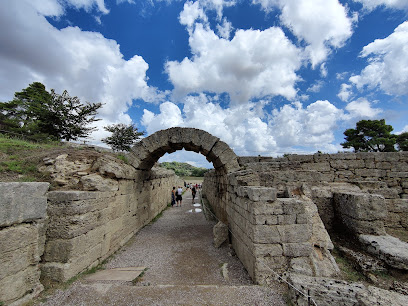
Altar of Zeus
0.6 km
Discover the sacred Altar of Zeus in Olympia, a testament to ancient Greek piety and the heart of Olympic sacrifices.
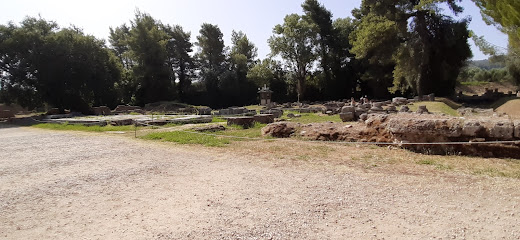
Stadium at Olympia
0.6 km
Walk the track where legends were made at the Stadium of Olympia, the birthplace of the Olympic Games.
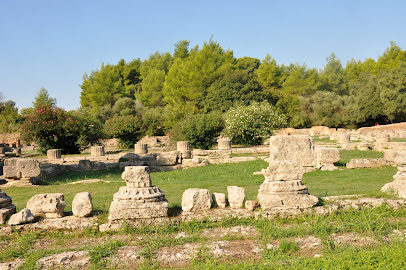
House of Nero
0.7 km
Explore the ruins of Nero's residence in Olympia, a window into the luxurious Roman lifestyle amidst the ancient Olympic grounds.
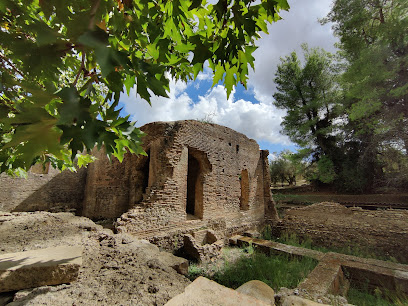
South Stoa
0.7 km
Explore the South Stoa in Olympia, the historic gateway where ancient athletes and visitors entered the sacred grounds of the Olympic Games.
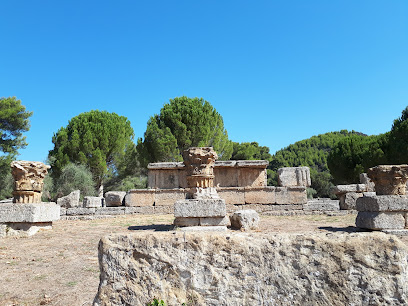
Temple of Apollo Epicurius at Bassae of Phigaleia
33.7 km
Discover the Temple of Apollo Epicurius, a remarkably preserved ancient Greek marvel in the mountains of the Peloponnese.
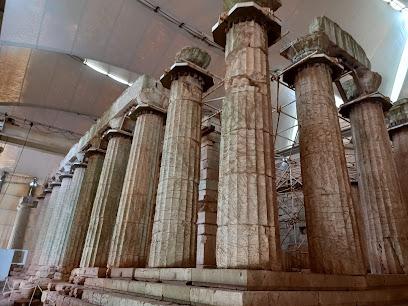
Unmissable attractions to see
Μικρό Γεφύρι
0.1 km
Explore the serene beauty of Mikrò Gefyri in Archaia Olympia, Greece, and immerse yourself in history and nature at this enchanting bridge.
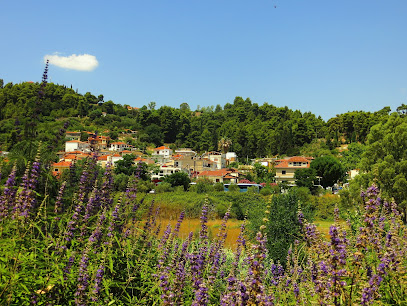
Parking Olimpia
0.3 km
Explore the ancient wonders of Olympia with convenient access from Parking Olimpia, a serene hub surrounded by history and nature.
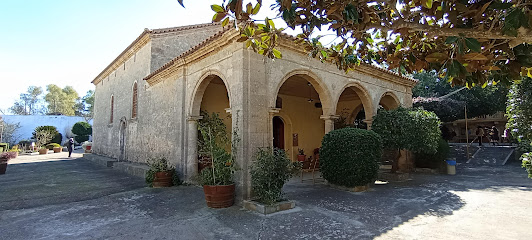
smili art workshop
0.3 km
Experience the rich artistic culture of Greece at Smili Art Workshop in Archaia Olympia, where creativity comes alive through engaging art classes.
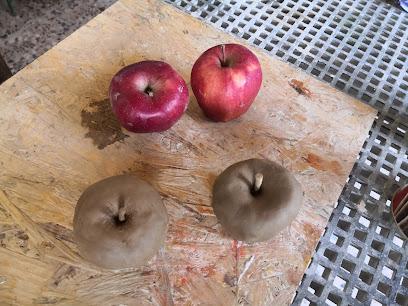
Archaia Olympia
0.4 km
Explore the stunning ruins and rich history of Archaia Olympia, the birthplace of the Olympic Games, in the heart of Greece.
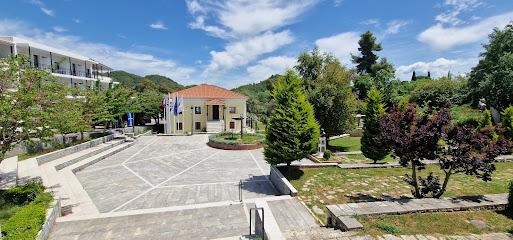
My Olympia Tour
0.4 km
Experience the historical grandeur of Ancient Olympia at My Olympia Tour, the birthplace of the Olympic Games and a UNESCO World Heritage Site.
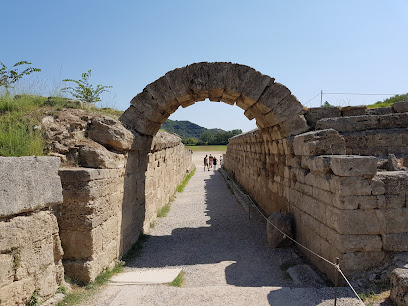
Mount Kronios
0.4 km
Discover Mount Kronios, a historical landmark and breathtaking viewpoint near Olympia, blending rich heritage with stunning natural beauty.
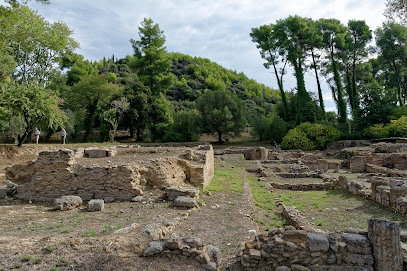
Archimedes Museum
0.4 km
Explore the Archimedes Museum in Archaia Olympia, where ancient science meets interactive learning, celebrating the genius of Archimedes and his inventions.
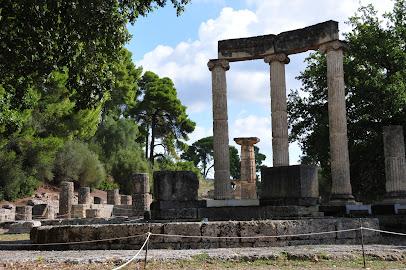
Museum of the History of the Olympic Games of antiquity
0.5 km
Discover the Olympic spirit at the Museum of the History of the Olympic Games of Antiquity in Archaia Olympia, where history comes alive through ancient artifacts.
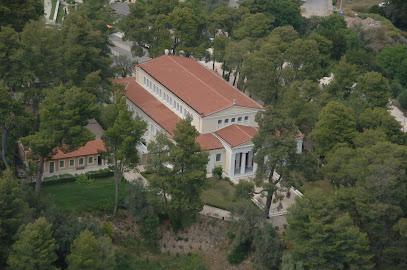
Πρυτανείο Αρχαίας Ολυμπίας
0.5 km
Discover the ancient roots of the Olympic Games at Ancient Olympia, a UNESCO World Heritage site blending history, culture, and stunning landscapes.
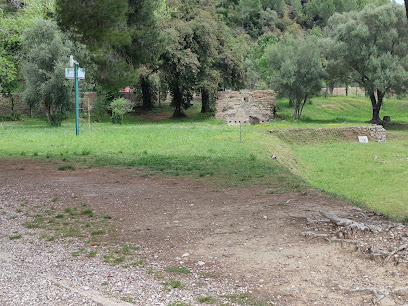
Nymphaeum
0.5 km
Explore the Nymphaeum in Archaia Olympia, a stunning historical landmark blending ancient architecture with natural beauty.
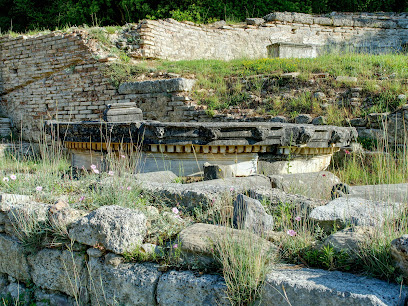
Temple of Hera
0.5 km
Explore the Temple of Hera in Olympia, Greece, where history, mythology, and breathtaking architecture come together in this UNESCO World Heritage site.
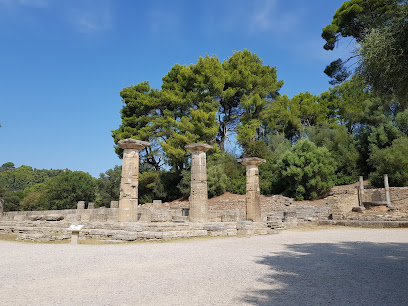
Philippeion
0.5 km
Discover the enchanting Philippeion in Ancient Olympia, a historical landmark that embodies the grandeur of ancient Greek civilization and its rich cultural heritage.
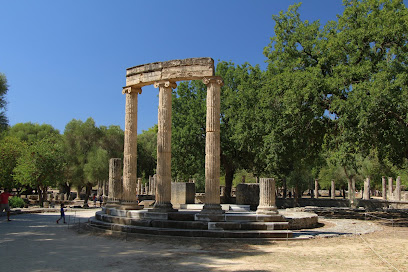
Altar of Demeter Hamyne
0.5 km
Explore the Altar of Demeter Hamyne, a historical landmark in Olympia, Greece, where ancient mythology and serene landscapes intertwine.
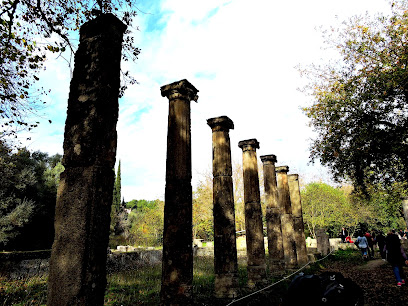
Site of Original Olympic Games
0.6 km
Explore the historic Site of the Original Olympic Games in Olympia, Greece, an archaeological wonder that celebrates the legacy of ancient athleticism.
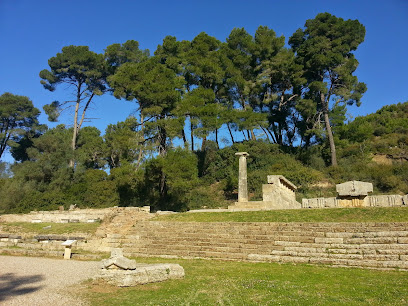
Archaeological Site of Olympia
0.6 km
Explore the birthplace of the Olympic Games, where ancient athletes competed in honor of Zeus. A journey through history and athletic glory.
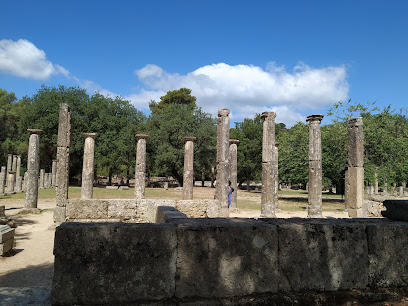
Essential places to dine
Αμβροσία - Ambrosia Garden
0.2 km
Experience authentic Greek cuisine amidst lush gardens in Ancient Olympia at Ambrosia Garden - where history meets culinary delight.
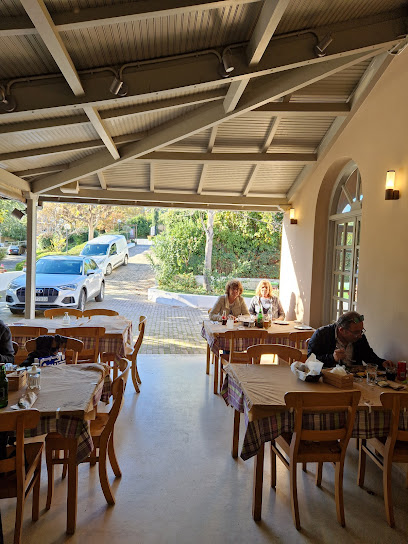
ΔΗΜΗΤΡΑ restaurant & wine
0.3 km
Discover authentic Greek flavors at ΔΗΜΗΤΡΑ restaurant & wine in Archaia Olympia—where tradition meets culinary innovation.
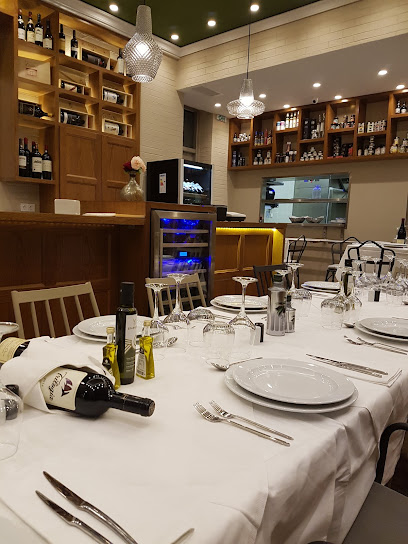
Rodo Cafe
0.3 km
Discover delightful flavors at Rodo Cafe in Ancient Olympia - where culinary tradition meets modern comfort.
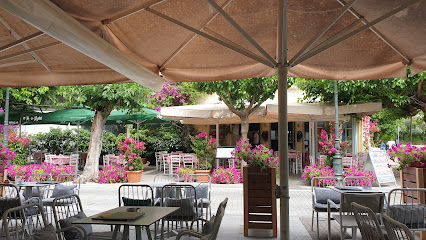
Πολύγευστον Authentic Greek Street Food
0.3 km
Experience authentic Greek street food at Πολύγευστον in Ancient Olympia—where tradition meets flavor.
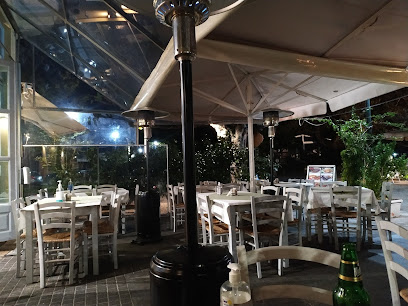
Mythos, Family Grill Tavern
0.3 km
Experience authentic Greek flavors at Mythos Family Grill Tavern in Archea Olympia – where tradition meets taste.
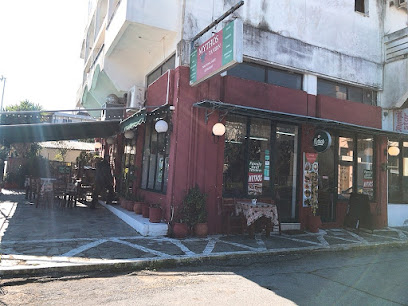
Ariston
0.3 km
Experience authentic Greek barbecue at Ariston in Archaia Olympia – where tradition meets flavor in every dish.
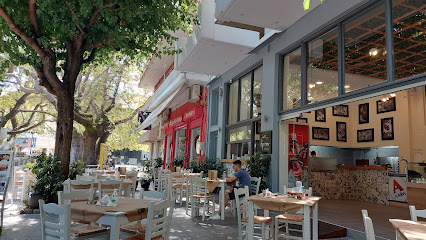
cafe top's
0.4 km
Discover authentic Greek flavors at Café Top's in Archaia Olympia – a perfect blend of tradition and hospitality.
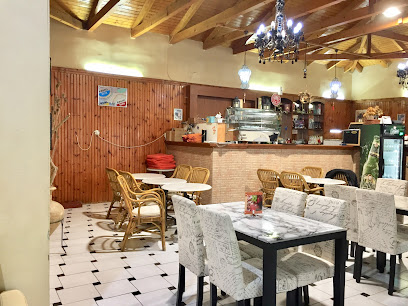
Symposio tavern
0.4 km
Experience authentic Greek cuisine at Symposio Tavern in Ancient Olympia - a culinary haven steeped in history and tradition.
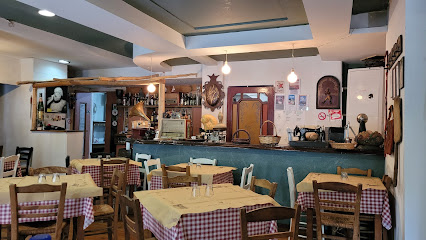
Aegean Restaurant Cafe
0.4 km
Experience authentic Greek cuisine at Aegean Restaurant Cafe in Ancient Olympia – where tradition meets flavor in a cozy setting.
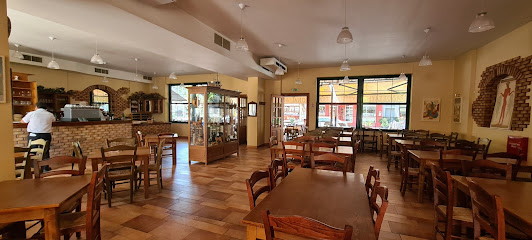
ΘΕΪΚΟΝ Cook bar
0.4 km
Discover the culinary delights at ΘΕΪΚΟΝ Cook Bar in Archaia Olympia—where delicious barbecue meets friendly service.
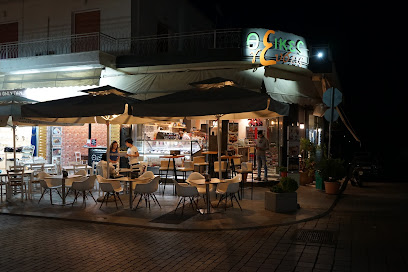
Pheidias Grill House
0.4 km
Experience authentic Greek flavors at Pheidias Grill House in Olympia—where grilled delights meet warm hospitality.
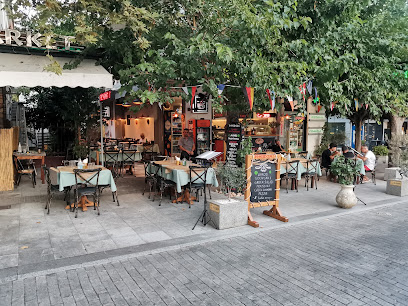
Zeus Restaurant-cafe-bar
0.4 km
Discover the best of Greek cuisine at Zeus Restaurant-Cafe-Bar in Ancient Olympia—where tradition meets modern taste.

Vasilakis
0.4 km
Discover authentic Greek cuisine at Vasilakis in Olympia – where tradition meets taste in every dish.
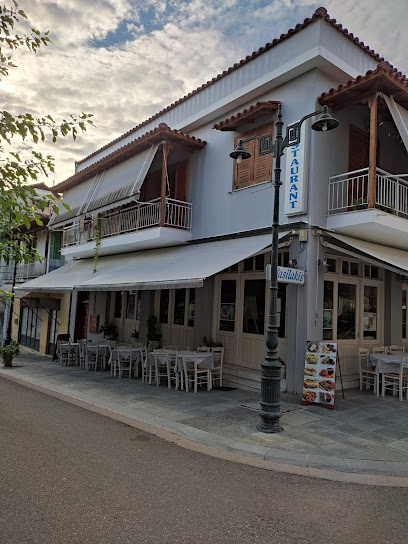
Taverna Orestis
0.5 km
Discover authentic Greek flavors at Taverna Orestis in Ancient Olympia – where culinary tradition meets warm hospitality.
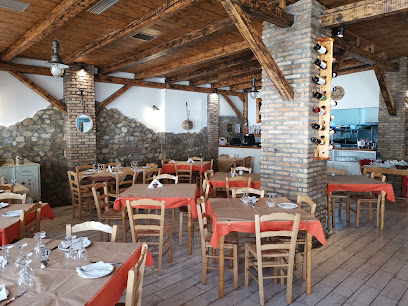
Anesis grill tavern [ψητοπωλειο Ζουνης]
0.5 km
Discover Anesis Grill Tavern in Archaia Olympia – A Culinary Gem Offering Authentic Greek Cuisine Amidst Historic Ruins.
![Anesis grill tavern [ψητοπωλειο Ζουνης]](https://evendo-location-media.s3.amazonaws.com/RestaurantImages/0f63643a-c517-40ed-9579-e765f479e184)
Markets, malls and hidden boutiques
Shop of the Museum of Ancient Olympia
0.0 km
Discover unique souvenirs that celebrate the rich history of ancient Greece at the Shop of the Museum of Ancient Olympia.
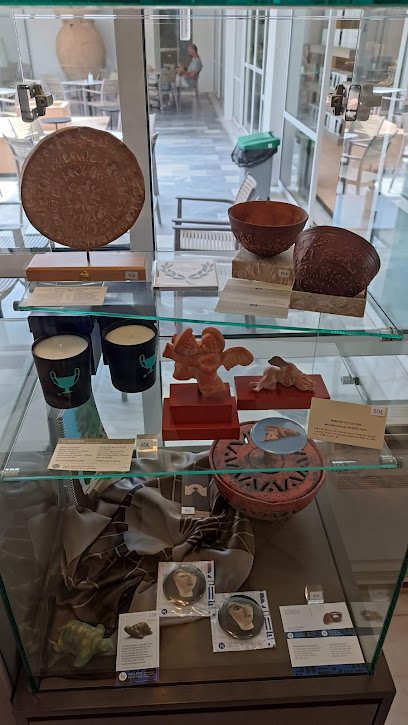
Zeus
0.4 km
Explore the exquisite craftsmanship of Zeus Jewelry Store in Archaia Olympia, where tradition meets modern elegance in stunning jewelry designs.
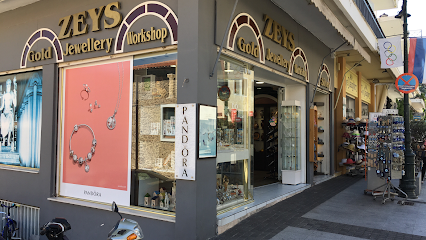
KHRYKEION
0.4 km
Experience the best of shopping and dining at KHRYKEION in Archaia Olympia, where modern retail meets rich Greek heritage.
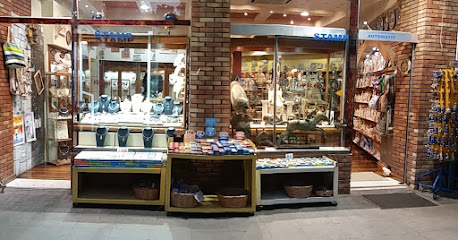
Kotinos shop, Ancient Olympia - Κατάστημα σουβενίρ Αρχαία Ολυμπία
0.4 km
Explore Kotinos Shop in Ancient Olympia for unique Greek souvenirs that celebrate culture, history, and craftsmanship, perfect for every traveler.
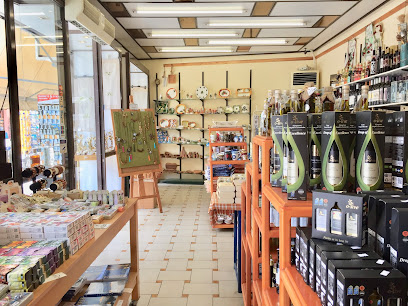
Olympic Corner
0.4 km
Explore Olympic Corner in Archaia Olympia for exquisite jewelry and a unique shopping experience in a vibrant atmosphere.
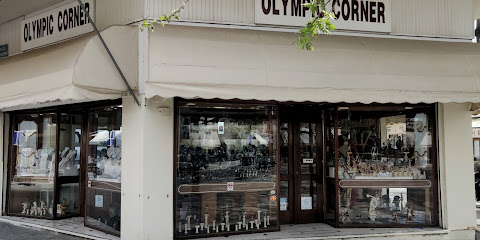
Products of Greece Olympia Nature
0.4 km
Explore the vibrant Products of Greece in Olympia, a traditional market that showcases authentic local flavors and artisanal crafts.
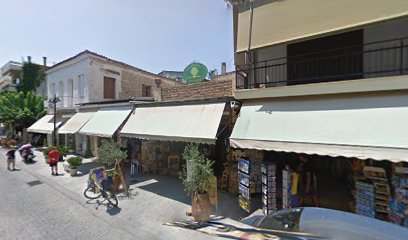
Leather Store Nebris
0.4 km
Explore the artistry of handcrafted leather goods at Leather Store Nebris in Archaia Olympia - a must-visit for unique Greek souvenirs.

Kavvouras leather goods(since 1984)
0.4 km
Explore the artistry of handcrafted leather goods at Kavvouras in Archaia Olympia, where tradition meets style.
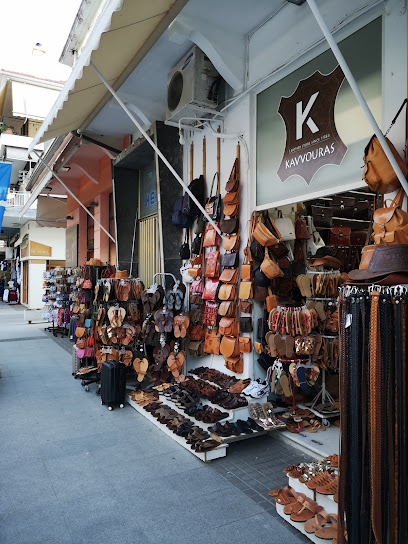
Sandalon
0.4 km
Explore Sandalon in Archaia Olympia for an exquisite selection of stylish and comfortable footwear to elevate your travel experience in Greece.
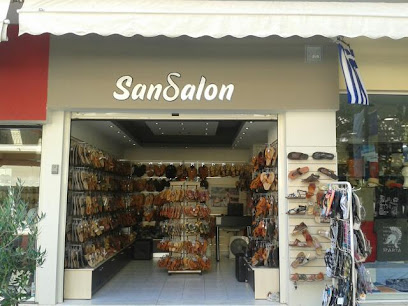
Krypte ArtShop
0.4 km
Explore Krypte ArtShop in Archaia Olympia for unique handmade jewelry and art that embodies the spirit of Greek culture and craftsmanship.
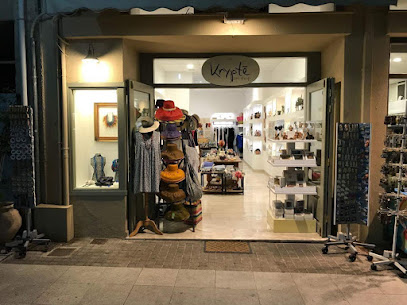
Corner T
0.4 km
Discover the charm of Archaia Olympia at Corner T, a vibrant shopping mall with unique boutiques and local culture.

Padelina Shopping Center
1.3 km
Experience the best shopping and dining at Padelina Shopping Center in Φαναράς, where local charm meets modern retail.
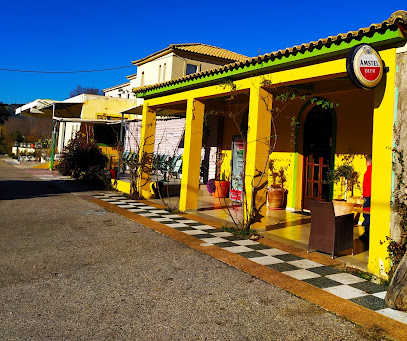
Unique Greek Souvenirs
27.6 km
Explore Unique Greek Souvenirs in Katakolo, a charming clothing store offering authentic Greek crafts and gifts that capture the essence of your travels.
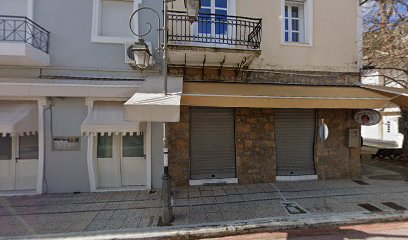
Nota Clothing
43.1 km
Explore Nota Clothing in Andravida for unique fashion pieces that capture the essence of modern style and local flair.

ΑΣΕΑ GROUP Α.ΔΙΑΜΑΝΤΟΠΟΥΛΟΣ κ ΣΙΑ Ο.Ε
63.1 km
Discover the essential building materials store in Kato Asea, where local craftsmanship meets quality supplies for your construction needs.
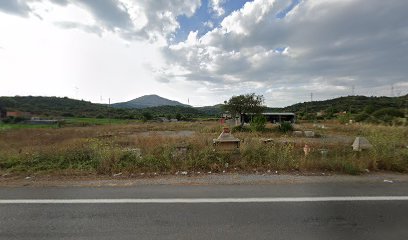
Essential bars & hidden hideouts
kalypso club
0.4 km
Discover the exhilarating nightlife at Kalypso Club, where music, dance, and vibrant energy unite in the heart of Archaia Olympia.

Zorbas Bar Ancient Olympia
0.6 km
Experience the vibrant atmosphere of Zorbas Bar in Ancient Olympia, where cocktails and history blend seamlessly for an unforgettable night out.
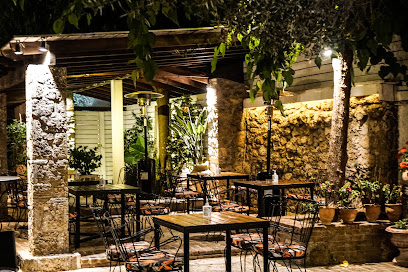
Hotel Europa Olympia
0.9 km
Discover the perfect blend of luxury and history at Hotel Europa Olympia, your gateway to the ancient wonders of Greece.

Beach Bar «Μαντώ»
25.1 km
Discover Beach Bar «Μαντώ», a tranquil beach escape in Zacharo, Greece, perfect for enjoying cocktails and beautiful ocean views.
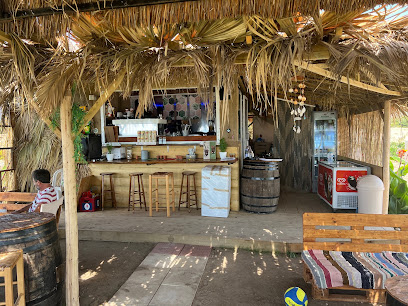
Seagull beach bar
26.3 km
Experience the serene vibes and refreshing drinks at Seagull Beach Bar in Zaharo Municipality, the perfect coastal escape for every traveler.
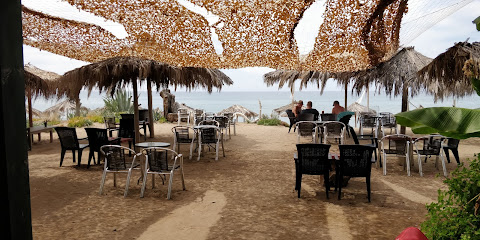
Lime Bar , Katakolo
27.4 km
Lime Bar in Katakolo: A lively spot for drinks, socializing, and enjoying stunning harbor views.
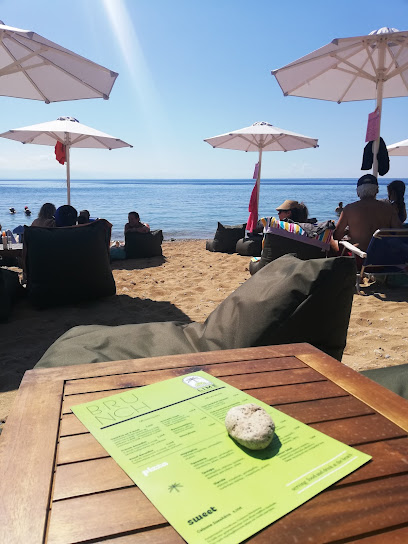
Marrone Brasserie Wine Bar
29.9 km
Discover the charm of Marrone Brasserie Wine Bar in Amaliada, where exquisite wines meet delightful flavors in a cozy atmosphere.

Vrahos Beach Snack Bar
57.4 km
Experience the essence of Greece at Vrahos Beach Snack Bar, where delicious grills meet breathtaking beach views.
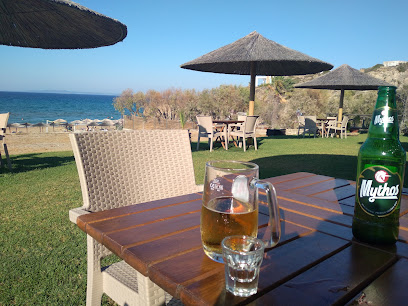
Sit and share coffee.food.bar
58.6 km
Discover the charm of Sip and Share Coffee Food Bar in Zakynthos, where delightful coffee and snacks meet a warm atmosphere and stunning surroundings.

Porto Azzuro Beach Bar
59.8 km
Discover the ultimate beachside escape at Porto Azzuro Beach Bar in Vasilikos, where relaxation meets exquisite Mediterranean flavors.

Apallu Beach Bar
61.4 km
Experience the vibrant beach culture and stunning views at Apallu Beach Bar in Larisos, the ideal spot for relaxation and delicious local cuisine.

Island Club
62.2 km
Experience the vibrant nightlife of Argassi at Island Club, where delicious cocktails and a lively atmosphere await every visitor.
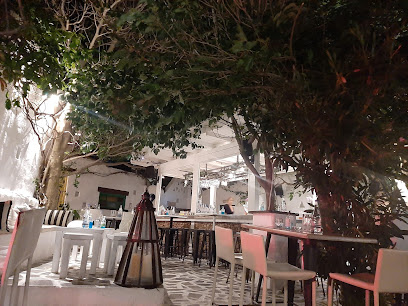
Aris Bezos Café Food & Wine
62.6 km
Experience the rich flavors of Greece at Aris Bezos Café Food & Wine, a charming grill in Κάτω Ασέα with delicious grilled dishes and exquisite wines.
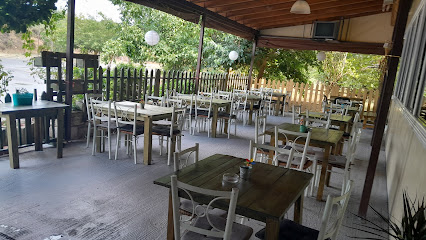
Beach Bar Ma,Yo Gianiskari
63.5 km
Discover the vibrant atmosphere and stunning views at Beach Bar Ma, Yo Gianiskari, the perfect beachside retreat in Araxos, Greece.

La Luna Bar Zante
64.5 km
Experience the vibrant nightlife at La Luna Bar Zante with outstanding cocktails and stunning seaside views in Zakynthos.

Nightclubs & after hour spots
Kourouta
8.5 km
Discover Kourouta, the ultimate night club in Oleni, Greece, where the vibrant nightlife and electrifying music create unforgettable memories.

Kingdom Night Club
30.0 km
Discover the electrifying nightlife at Kingdom Night Club in Amaliada, where great music and vibrant energy create unforgettable experiences.
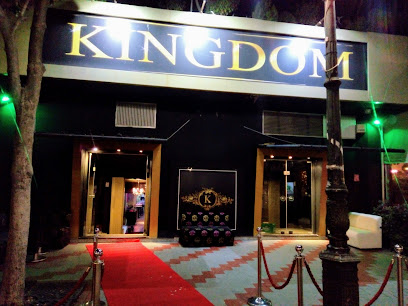
White Island Summer Club
33.0 km
Discover Kourouta's nightlife gem at White Island Summer Club, where unforgettable parties and vibrant energy come alive under the stars.

Thínes
45.2 km
Discover the electrifying nightlife of Thínes, a premier night club in Pineios, Greece, where unforgettable dance experiences await.
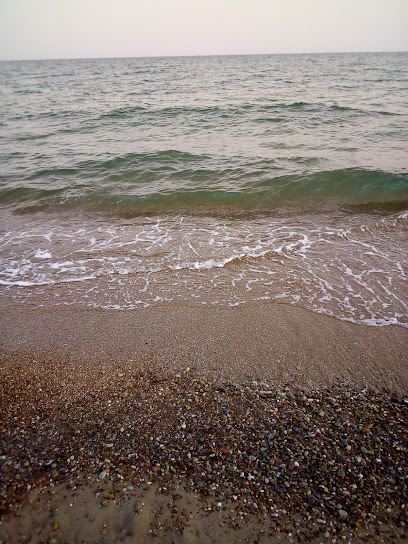
Jo Club
49.9 km
Discover the lively nightlife of Pelagos at Jo Club, a vibrant bar offering delicious drinks and a welcoming atmosphere.
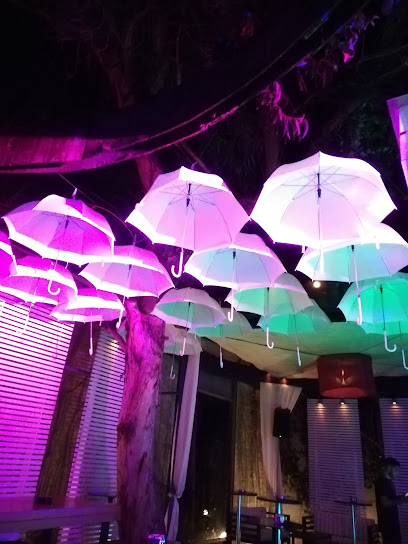
Noiz Club
52.8 km
Discover the vibrant nightlife at Noiz Club in Megalopolis, where electrifying beats and exciting ambiance await every night.
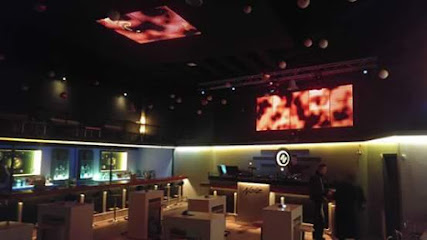
Garden Room
56.2 km
Discover the heart of Kato Achaia's nightlife at Garden Room, a dazzling night club that promises an unforgettable experience with music and dancing.
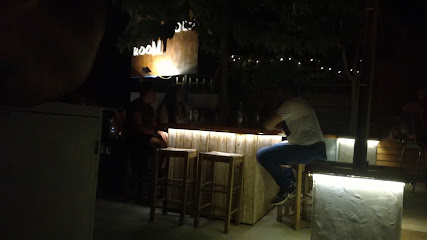
Magic Club
63.6 km
Discover the vibrant nightlife at Magic Club in Argassi, Greece, where unforgettable parties and electrifying music await every night.

Club Barrage
65.0 km
Dive into the electrifying atmosphere of Club Barrage, Zakinthos' top night club, where unforgettable nightlife awaits!

Saint Club
67.2 km
Dive into the energetic nightlife at Saint Club, the premier night club in Patras, Greece, where unforgettable experiences await every visitor.

Asteria
67.3 km
Experience the vibrant nightlife of Patras at Asteria, where music, dancing, and unforgettable moments come alive until dawn.
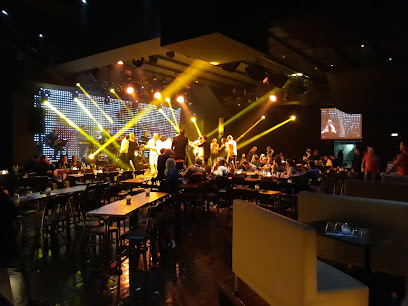
Mod's Club
67.4 km
Discover the electrifying nightlife at Mod's Club in Patras, where music, dance, and vibrant energy unite for an unforgettable experience.

Navona Club Di Oggi
67.5 km
Discover the electric atmosphere of Navona Club Di Oggi, a must-visit disco club in Patras for an unforgettable night out.

No Class
67.5 km
Discover the electrifying atmosphere of No Class, Patras' vibrant rock music club, where unforgettable nights and live performances await.
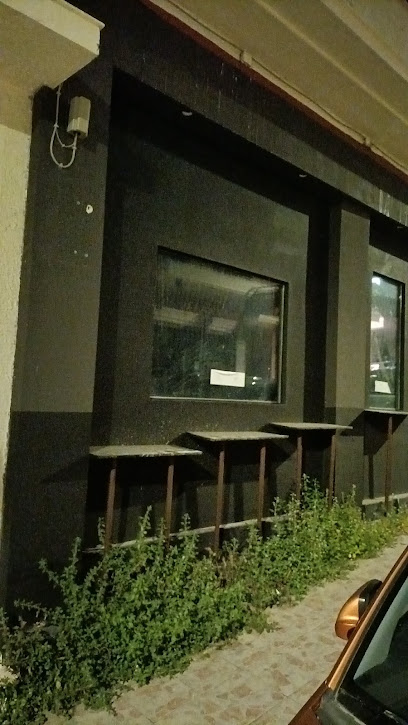
Vips Ellinadiko
67.7 km
Discover the electrifying nightlife at Vips Ellinadiko, a premier night club in Patras, offering vibrant music and an unforgettable atmosphere.
